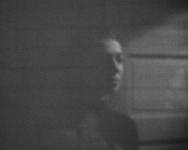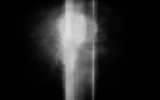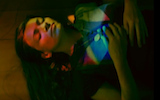or
- @
- A Hawk and A Hacksaw
- A. Savage
- Action/Adventure
- ADULT.
- AJJ
- Alabaster dePlume
- Algernon Cadwallader
- Alkaline Trio
- All Dogs
- Ana Roxanne
- Andrea Gibson
- Andy Hull
- Angel Du$t
- Ani DiFranco
- Anna Burch
- The Anniversary
- Anthony Raneri
- The Appleseed Cast
- Arab Strap
- The Armed
- Art Moore
- Art Feynman
- ARTHUR
- Automatic
- Awich
- Azure Ray
- The Babies
- Balance and Composure
- bar italia
- Bat Fangs
- The Bats
- Bayside
- Beak>
- Being Dead
- The Belair Lip Bombs
- Bell Witch
- Belle and Sebastian
- Bill Callahan
- Bing & Ruth
- Bizhiki
- Black Belt Eagle Scout
- Black Country, New Road
- Black Marble
- blair
- The Bled
- Blood Cultures
- Blouse
- Bnny
- Body Meat
- Body of Light
- Body/Head
- Bodysync
- Bolt Thrower
- Bonny Doon
- Boy Harsher
- Boy Scouts
- Brian Sella
- Bright Eyes
- Brodinski
- Brooke Candy
- Brother Bird
- The Bug Club
- Camera Obscura
- Candy
- Cap’n Jazz
- caroline
- Casino Hearts
- Caspian
- Cate Le Bon
- Ceremony
- Chain of Flowers
- Chanel Beads
- Charlie Hilton
- Chastity Belt
- Choir Boy
- Chris Pureka
- Circus Trees
- The Clean
- The Clientele
- Cloakroom
- Coalesce
- Cola
- Colleen
- Combo Chimbita
- Conor Oberst
- Control Top
- The Corin Tucker Band
- Corridor
- Cory Hanson
- Cowgirl Clue
- Crack Cloud
- Craft Spells
- Craig Finn
- Crumb
- crushed
- Cults
- Current Joys
- Cursive
- daine
- Damien Jurado
- Dan Andriano
- Dan Wriggins
- David Kilgour
- Dazegxd
- Dazy
- Deafheaven
- Dean Johnson
- The Dear Hunter
- Deeper
- DEHD
- Desaparecidos
- Desert Oracle
- Devon Welsh
- Diles Que No Me Maten
- Discovery Zone
- Divino Niño
- dj blackpower
- Do Make Say Think
- Donna Missal
- Dougie Poole
- Downtown Boys
- Draag
- draag me
- Drab Majesty
- Drive Like Jehu
- Dry Cleaning
- Ducks Ltd.
- duendita
- Dum Dum Girls
- Dummy
- Dungen
- Dustin Kensrue
- Dutch Interior
- Dylan Carlson
- Earth
- Earthless
- Ebbb
- Edsel Axle
- Ekko Astral
- Él Mató a un Policía Motorizado
- El Perro Del Mar
- Elephant 6 Holiday Surprise Tour
- Emma Ruth Rundle
- Empress Of
- Erin Rae
- Escape-ism
- Esprit 空想
- Eterna
- eTown on the Road
- Etran de L’Aïr
- Ex Hex
- EXUM
- Fat Dog
- Faux Real
- Fazerdaze
- The Feelies
- The Felice Brothers
- Fenne Lily
- Fiddlehead
- Filthy Friends
- Finch
- Finom
- fish narc
- Florist
- Florry
- Fog Lake
- Font
- Frances Quinlan
- Frances Cone
- Frankie Cosmos
- Freak Slug
- French Police
- Friendship
- Frog
- The Front Bottoms
- Fu Manchu
- Fugitive
- Fust
- Gatecreeper
- Geordie Greep
- George Clanton
- Georgia Maq
- The Get Up Kids
- Ginger Root
- Girl Ray
- Glitterer
- Glitterfox
- Glixen
- The Go! Team
- The Good Life
- Good Morning
- The Gotobeds
- Gouge Away
- Graham Hunt
- Grails
- Gregory Alan Isakov
- Grouper
- Gruff Rhys
- Guerilla Toss
- Haiku Hands
- Hailu Mergia
- Haley Heynderickx
- Hannah Jadagu
- Heavenly
- Helen
- Helms Alee
- Here We Go Magic
- Heron Oblivion
- High Vis
- Hinds
- HiTech
- The Hold Steady
- Holy Fawn
- Holy Sons
- Home Front
- Hop Along
- Horse Jumper of Love
- Horsegirl
- Hot Rod Circuit
- Hot Snakes
- Hotline TNT
- Hunx And His Punx
- Huron John
- Ian Felice
- Iceage
- Idle Heirs
- IFE Radio
- Jahnah Camille
- Japanese Breakfast
- Jeff Mangum
- Jessica Pratt
- Jesus Piece
- JIVEBOMB
- Joe Wong
- John Maus
- Johnathan Rice
- Jonathan Toubin
- JOON
- Joshua James
- Joyce Manor
- Julia Shapiro
- Julie Byrne
- Kassie Krut
- Kate Davis
- Katy Kirby
- keiyaA
- Kevin Devine
- Kikagaku Moyo
- Kim Gordon
- Kindness
- King Woman
- Kristin Kontrol
- Kurt Vile
- Lady Lamb
- Lala Lala
- Laura Stevenson
- Lauren Early
- Lee Ranaldo
- Less Than Jake
- Lexie
- Lifeguard
- Liquid Mike
- Los Eclipses
- Los Bitchos
- Los Campesinos!
- The Love Language
- Loving
- LUCY (Cooper B. Handy)
- Luke Temple
- LustSickPuppy
- Minami Deutsch
- Mac McCaughan
- Mach-Hommy
- Macie Stewart
- MadeinTYO
- The Make-Up
- Malcolm Middleton
- Mali Velasquez
- Mamalarky
- Mamiffer
- MAN ON MAN
- Manchester Orchestra
- Marci
- Mareux
- Margaritas Podridas
- Maria Taylor
- mark william lewis
- Mary Jane Dunphe
- Mary Lattimore
- Mary Timony
- Matt Skiba
- Max Bemis
- Maya Ongaku
- Mclusky
- Mdou Moctar
- Meg Elsier
- Melenas
- Melkbelly
- Men I Trust
- Merce Lemon
- The Messthetics
- METZ
- mewithoutYou
- Michael Rother
- MIKE
- Militarie Gun
- MILLY
- Moaning
- Modern Nature
- The Moldy Peaches
- MONO
- Monsters of Folk
- Moor Mother
- MSPAINT
- The Music Tapes
- N0V3L
- Naima Bock
- Nala Sinephro
- Narrow Head
- Neggy Gemmy
- Neutral Milk Hotel
- Neva Dinova
- The New Amsterdams
- New Found Glory
- NGHTCRWLR
- Nick Waterhouse
- Nivhek
- NNAMDÏ
- No Party For Cao Dong
- NOIA
- Nuclear Daisies
- O.
- Okkervil River
- Old Man Gloom
- Om
- Omni
- Orchid
- Our Girl
- Ovlov
- Panther Modern
- Parquet Courts
- Pastel Ghost
- Pattie Gonia
- Pelican
- Peter Mulvey
- Plosivs
- Poison Ruïn
- Portrayal of Guilt
- Power Trip
- Prize Horse
- Protomartyr
- PVA
- Quasi
- Rahill
- Rainer Maria
- Rangda
- The Red Pears
- Regional Justice Center
- Resavoir
- Riki
- Robber Robber
- Robert Forster
- Rocket From The Crypt
- Rosali
- Rose City Band
- Russian Circles
- RXKNephew
- Ryan Davis + The Roadhouse Band
- S. Carey
- Sacred Paws
- Sad13
- SadGirl
- Safe Mind
- Saintseneca
- Sarah Harmer
- Saves The Day
- Say Anything
- Sea Power
- The Sea And Cake
- Seahaven
- Sean Hayes
- Senses Fail
- Sessa
- Seth Bogart
- Sex Week
- Sextile
- shame
- Shannon and the Clams
- Shannon Shaw
- Sheer Mag
- Shopping
- Show Me The Body
- Sima Cunningham
- Sincere Engineer
- Sir Richard Bishop
- SistaStrings
- Slater
- Slaughter Beach, Dog
- Slauson Malone 1
- Sluice
- Snail Mail
- Snõõper
- The So So Glos
- Soft Kill
- Sonic Youth
- Soul Glo
- Sour Widows
- SPEED
- Speedy Ortiz
- SPIRIT OF THE BEEHIVE
- The Spits
- Sports
- Steve Gunn
- Stevie Jackson
- Still Corners
- Strand of Oaks
- SUICIDAL-IDOL
- Sumac
- Sun June
- Super Furry Animals
- Superchunk
- Surf Curse
- Swami John Reis
- Tanner Merritt
- Tara Clerkin Trio
- Taraneh
- Thou
- Thrice
- Thurston Moore
- Tigers Jaw
- Tijuana Panthers
- Tim Kasher
- Tim Kinsella & Jenny Pulse
- Title Fight
- Titus Andronicus
- Together Pangea
- Torche
- Tortoise
- Total Control
- Touché Amoré
- Tracyanne & Danny
- Trash Talk
- Tropical Fuck Storm
- True Widow
- TrueAnon
- Truth Club
- Turnover
- Tweens
- Ugly
- Uniform
- untitled (halo)
- Upchuck
- Valencia
- The Vaselines
- Vegyn
- Video Age
- Vienna Teng
- Winged Wheel
- WAND
- Wavves
- Waxahatchee
- Wet
- White Denim
- Whitney
- WHY?
- Wicca Phase Springs Eternal
- Widowspeak
- Wiki
- Wild Nothing
- Will Sprott
- Wilsen
- Woods
- Yard Act
- Yaya Bey
- youbet
- Youth of Today
- Yumi Zouma












